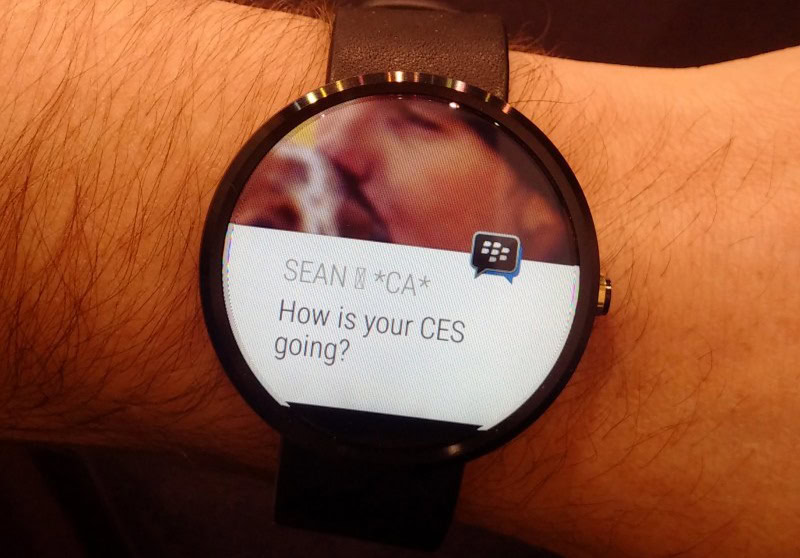Affiliate links on Android Authority may earn us a commission. Learn more.
Top Japanese university bans all watches from entrance exams

Smartwatches have become a big business, with Apple’s Watch leading the charge (sales wise) thanks to its $1.7 billion profit picture. Samsung recently released two highly praised timepieces, as did TAG Heuer and even Fossil. The market looks to be expanding, in some ways, much as how the tablet industry once took off. But as these devices become not just more prevalent, but also more present, ethical issues begin to arise. One such matter, the idea of using a smartwatch to cheat during exams, has been taken very seriously here in Japan.
Kyoto University, one of the country’s most acclaimed and prestigious public universities, has announced that it will ban all watches from entrance exams starting in 2016. As reported by The Wall Street Journal:
The university said the proliferation of smartwatches has made it difficult to determine whether someone is using a watch to communicate with a friend or calculate figures. The ban “is required in order to conduct a fair test,” a university official said.Other universities in the world have taken similar measures, but Kyoto University is likely the first national university in Japan to ban use of all watches at entrance exams, the official said. Exam takers wishing to know the time will have to look up at clocks set up in each room.
If the prohibition seems preposterous, consider that Kyoto University has already had to deal with mobile cheating mishaps. Back in 2011 there was an incident involving a mobile phone, where during an entrance exam, a student proceeded to consult a message board to ask and receive answers to questions. The incident would eventually result in Kyoto police officers later making an arrest.
Japan’s case
In the United States, those seeking to enter a college or university are typically required to take the SAT (Scholastic Achievement Test). Said exam is focused exclusively on reading comprehension, writing, and mathematics. Those universities require additional demonstrations of aptitude in additional fields – science for example – are asked to take the SAT Subject Tests, of which there are 20 varieties.
In Japan however, in addition to a standardized exam, universities often have their own specific examination as well. Even more daunting, these tests consist of multiple fields of study involved including geography, history, English/foreign language, science, mathematics, and social studies. The daunting challenges involved has given rise to “Cram Schools” in the country.

Rather than go home and play or do after their high school classes finish for the day, many students then go to another school – a cram school – to specifically practice for the entrance exams. Those parents who wish for their child to get into a good high school often send their offspring to cram schools in junior high as the best high schools themselves have entrance exams. So realistically speaking, it’s possible for any given child to have spent 6 years or more in cram schools preparing for exams.
Suffice to say, cheating is absolutely not allowed in any way, shape, or form.
A sign of things to come?
To assume the measure put in place by Kyoto University will be limited to just the one school is perhaps a bit unrealistic. While a product like the Apple Watch might never be confused for a Rolex, as more and more brand manufacturers begin to produce wearables, the fusion will only further flourish. Likewise, lower priced smartwatches have also begun to pour into the market and thus the potential is even more possible for cheating less teachers are readily familiar with tech.
At the very least, today’s news brings tidings of a future in the educational system that is perhaps, inevitable. Just as how Wikipedia created countless problems for potential plagiarism, so too have smartphones and now smartwatches created their own.
An interesting issue: Is college still “relevant”?

At the same time however, it is worth considering the idea that universities, in a traditional sense, no longer have the weight they once did. Until recently, a degree from Harvard or Yale would be a near instant path to success. Successful graduates would be almost assured a great job with a sizable salary. Indeed it was often considered that any degree from any institution of higher learning would be an asset to those who sought to make the most of their future career.
These days however, things have changed. One need only consider Palmer Luckey, who managed to accomplish many things before he began Oculus VR at just eighteen years of age. As many are aware, Facebook would later purchase the company for $2,000,000,000. A pretty impressive accomplishment for a Kickstarter project.

There are countless other young entrepreneurs as well; kids making apps, inventing new technology, discovering new solutions ot problems, even starting companies. The world has changed such that a traditional, formal education is no longer the “key” to success to the extent it once was. The IT industry itself has seen a remarkable amount of success from those who don’t follow the “set path” to it including Steve Jobs, Bill Gates, Mark Zuckerberg, Lawrence Ellison, and Michael Dell.
Wrap up

Make no mistake, universities are still the de-facto way for many to succeed in life, however they are increasingly becoming not the only way. Knowledge of IT, especially if it begins at a young age, can often make a big difference in the lives of some. Cheating however, will continue to remain a problem be it in the classroom, the workplace…even with benchmarks. If a university is designed, in part, to prepare young adults for the challenges of the life ahead of them, it would follow that allowing an equal playing field is part of that.
Of course, everyone will always be free to have their own opinion of right and wrong, but – at least in the case of Kyoto University – it will definitely not involve the use of watches in exam classrooms.
We want to hear your thoughts on this matter. Has Kyoto University gone too far? Have educational institutions on the whole gone too far? Have they not gone far enough? In particular we are interested to hear what kinds of differing opinions one might have depending on their age/generation. Leave us your comments below!